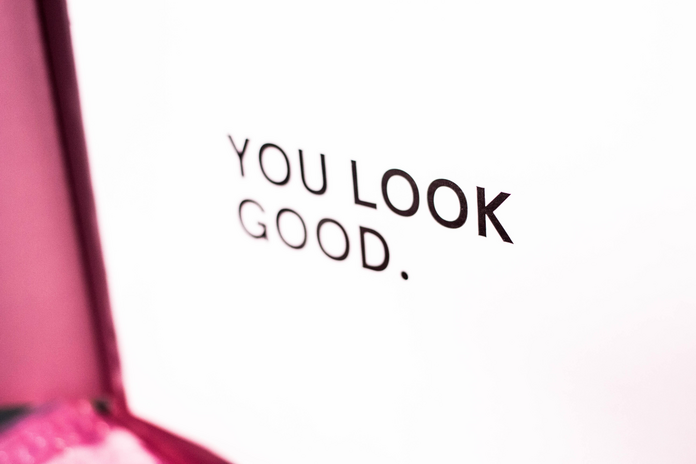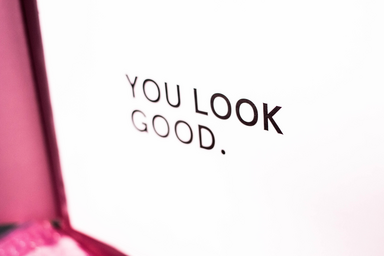“Pretty woman, walking down the street” – Roy Orbinson
Looks or personality? This age old question continues to be asked when determining our preferences for a partner. Humans are highly visual creatures. An attractive person walking by will turn heads. Although beauty is certainly in the eye of the beholder, we’ll be talking about the people who are conventionally attractive. ‘Pretty privilege’ sums up our biases and preference for attractive people, whereby beauty is socially constructed, marginalising certain individuals and groups in the process.
“Pretty woman, the kind I like to meet” – Roy Orbinson
It is natural that people gravitate towards those who are attractive. Butterflies and moths. Which of the two would you prefer? Butterflies are regarded as beautiful and ethereal while their moth counterparts are generally plain and unattractive. Despite belonging to the same insect family (Lepidoptera), when asked about the beautiful butterfly, people think about lush gardens. The brown and small moth, however, attracts clothes-eating accusations. Similarly, although all humans belong to the same family (Homo Sapiens), the treatment and stigma toward certain visual characteristics share a stark resemblance to the butterfly-moth comparison. Natural preference for beauty favours individuals who are deemed more attractive, resulting in them receiving greater benefits in school or at the workplace. Even your day-to-day life becomes delightful when you’re attractive because others treat you better; they hold the door for you, offer to buy you drinks, and give you freebies at restaurants.
Ethan Milne of the Ivey School of Business says that attractiveness is in fact, an advantage. Attractiveness relies on various characteristics including body shape, facial feature, and the presence of a youthful gleam. This prompts us to reflect on ourselves and how we treat others. Have you been nicer to someone whom you considered attractive? Have you favoured an actor/actress, singer, or dancer because they were attractive, instead of identifying their talent first?
“Pretty woman, I couldn’t help but see” – Roy Orbinson
The ‘pretty privilege’ phenomenon can best be examined through social media, where looks outvalue character. TikTok is a platform for users to post videos of themselves. With that said, it is a highly visual platform. There is a sort of pressure placed on people when they post on TikTok; they have to look good, or they won’t post it.
The pandemic has increased downloads, viewership, and video postings on TikTok, attracting the younger demographic. Addictive dances, clothing hacks, and many more viral trends can be found on the social media app. TikTok has provided a platform for several people to gain skyrocketing fame through their religious posting of videos. Calling it a career has definitely raised certain eyebrows and people are starting to question why these TikTok stars are famous hold more fame as compared to, say, activists and authors. Some think that these TikTok stars lack particularly remarkable qualities, largely attributing their fame to their physical attractiveness.
An article from The Guardian seems to confirm this suspicion. Pretty privilege is so ingrained in us that we discriminate against ‘ugly’ characters who post videos on TikTok. The article revealed that TikTok moderators restricted videos from users who appeared too ugly, poor or disabled to create aspirational air in the videos featured on the platform. Apparently, those videos were deemed less attractive and unworthy of recommendation and a spot in the For You page of the app. A representative of the social media platform stated that they did so to prevent bullying. But regardless of the intentions, this unsettling foul play behind what goes up on the For You page conditions users to see only attractive people in their algorithms, pressurising users to either be attractive, or not post at all.
Believe it or not, all of us fall victim to or are unknowing contributors towards ‘pretty privilege’. Apart from women, men definitely experience ‘pretty privilege’ as well. Ted Bundy, a serial rapist, kidnapper and murderer gained an alarming number of fangirls when High School Musical heart-throb Zac Efron was cast to play the criminal in a Netflix docuseries back in 2019.
“…much of the chatter online was about his good looks”
Morals are questioned here, as people overlook the criminal aspect of a person because of attractiveness. Bundy used his supposedly good looks to attract women, assaulting and murdering them in the end. Years later, despite his actions and misdeeds being known to the public, people still overlook that because of his good looks. An attractive, college-educated man, Bundy was a former law student who had worked in politics. Many of his former co-workers could not accept the fact that he was a killer when he was apprehended for his crime. Appallingly, when he was on trial, women would turn up to court to give him handwritten letters, as alleged by Margaret Good, one of his defence lawyers.
As social media continues to reinforce societal beauty standards, the pursuit of looks will continue to be ingrained in our everyday lives, and we might unconsciously or subconsciously forget the complexity and biases of it all. We should pay more attention to “pretty privilege” and find out if we ourselves partake in this phenomenon.
For more information, please refer to
The Problem of Pretty Privilege
Pretty Girls Also Get Better Grades Because Life Is Unfair
TikTok ‘tried to filter out videos from ugly, poor or disabled users’


